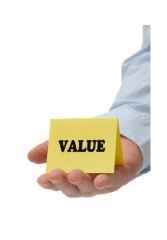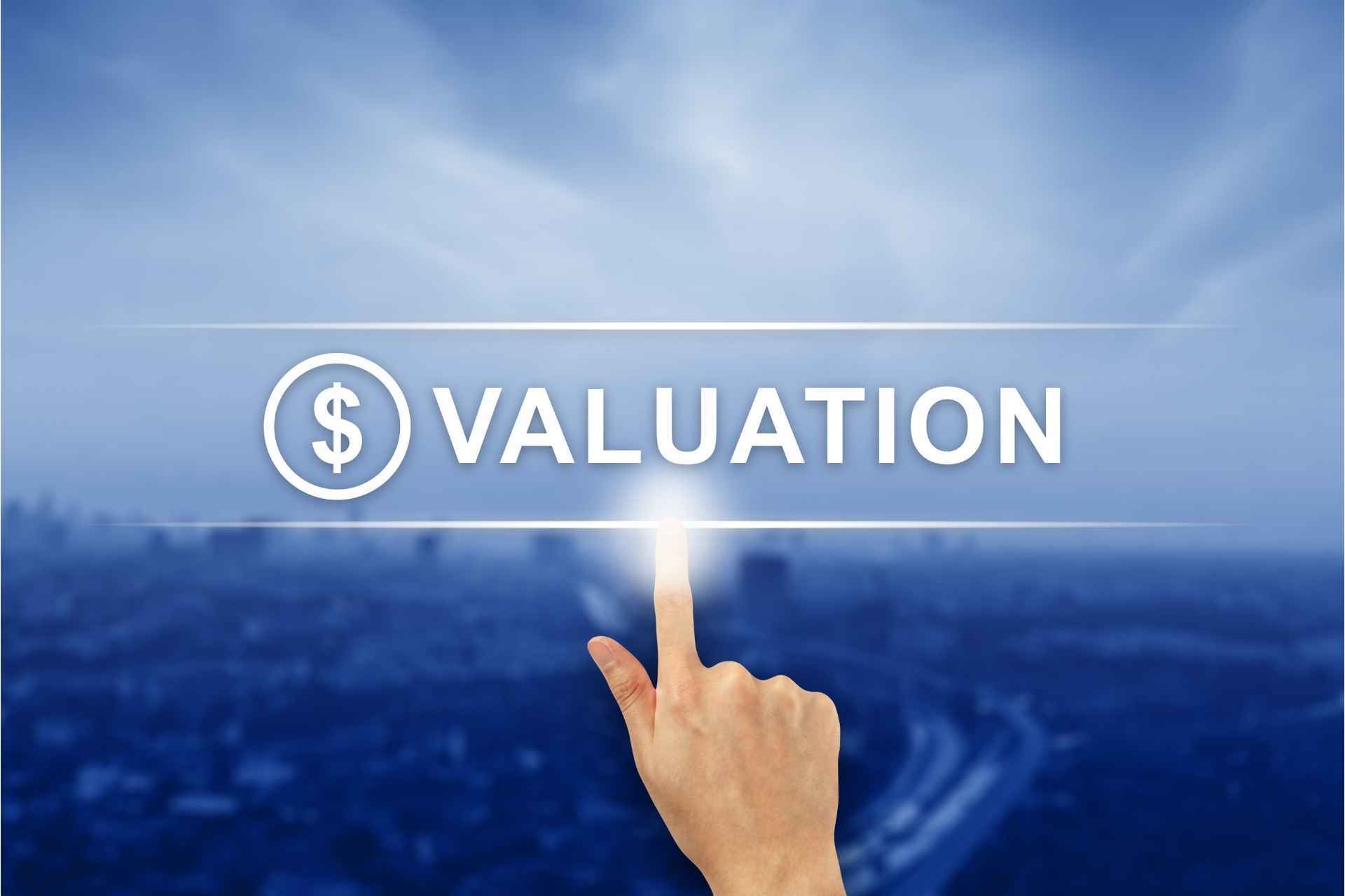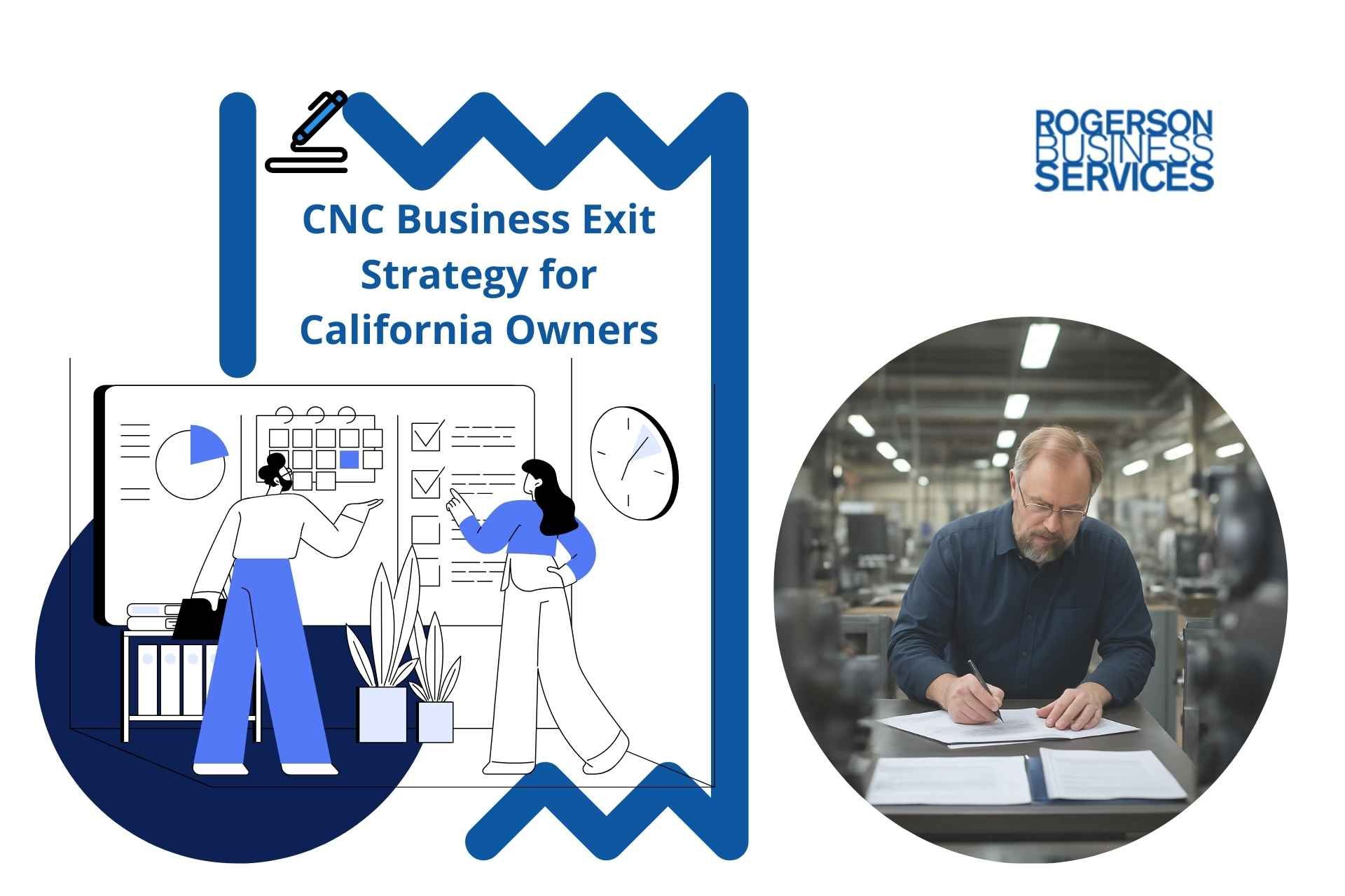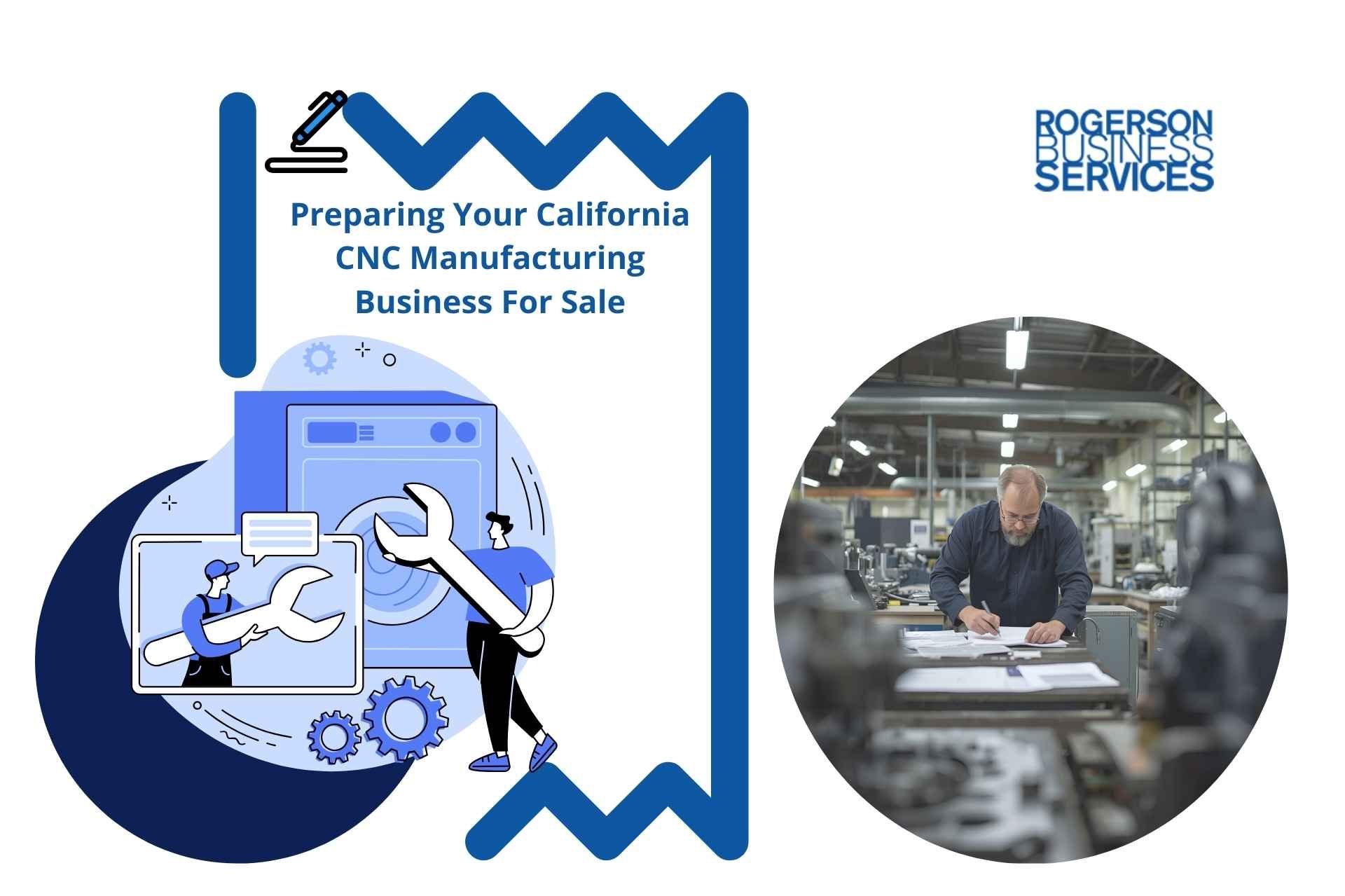The Ultimate Guide To Business Valuation Methods
We’ll show you why business valuations are important, cover the terminology you’ll encounter, and offer advice to make sure you choose the right business valuation method for your circumstances.
Get The Guide
Business Valuation Methods Guide
Increase Your Chance Of Success!
Guide to help in business valuation
Valuation Of Business Methods
To get to a market price for your business, there are three main business valuation methods:
- Asset-based,
- Income-based,
- Market-based.

Asset-Based Valuation
Asset-based business valuation is the process of evaluating a business's assets to assess its value. This method estimates the business’s worth based on tangible resources, such as equipment and inventory owned by the business.
This method proves to be particularly beneficial when valuing assets with long life spans and can convert into cash easily. To understand the worth of a business, estimations made on liquidation value minus any credit balances or liabilities must take place first.
But most professionals who ascertain market prices will use both income-based and market-based appraisals simultaneously thus ensuring an accurate selling price for the commercial entity.
Cost Approach
The cost approach is also known as the Asset-based approach. In this effort to value a business, a certified appraisal professional will use the present value of your business’s net tangible assets - hence its alternative name, Asset-Based.
Using your assets, a professional can determine the fair market value of your business by subtracting your liabilities from your identifiable assets.
The cost approach is typically most beneficial to asset-intensive companies, as they hold a lot of value in their physical assets. For example, a manufacturing or construction company would have a considerable value in assets.
This approach is also useful for someone whose company no longer boasts earnings worth more than their assets. By approaching a valuation this way, an M&A Advisor can present a failing company to a potential investor while showcasing its physical or asset value and making it more attractive.
Determine Economic Value
The economic value of your business is closely linked to the amount of money a person is willing to invest in it. Essentially, the economic value of your company equates to the benefit that someone can pull from it.
It’s not uncommon for the economic value to differ from the market value of your lower middle market business. Economic value often changes based on who you ask, while the market price of a company may be higher or lower.
Because economic values are subjective to the value placed by an individual investor or buyer, it can be challenging to nail down just one valuation. Though, a professional M&A business broker can usually come up with a reasonable estimate based on a variety of factors such as net income or profits, name recognition, and assets.
Determine Fair Market Value
The fair market value of your business will be the sales price ultimately agreed upon by you, the business owner, and the other parties involved - whether it be a buyer, investor, family members, etc.
Determining the fair value of your business can seem like a never-ending process with lots of factors to consider, so business owners often turn to the counsel of a mergers and acquisitions Advisor.
Calculating fair value can be problematic because of the many details that can make an impact.
For example, things like partner ownership, taxation, seasons of the business, changes in the local, regional, national and international economy, new or changes to existing laws and even divorce processes can affect the fair value at the end.
Book Value
The book value of your company is very strictly numbers-based. It applies the value of your shareholders’ equity using balance sheets. At its most basic level, you can determine your company’s book value by subtracting your total liabilities from your total assets.
Book value is often referred to as the net asset value of your business. Your assets can include intangible assets, such as brand recognition, patents and licenses, and goodwill. Your liabilities can consist of items like trading costs, taxes, and other charges, along with debt.
Liquidation Value
Should your company go out of business, you would probably try to sell as many of your assets as possible to make up for your losses. This is generally how a liquidation value works.
A Liquidation Value takes all of your tangible assets and puts a price on them. They might include things like any real estate your business owns, equipment and machinery, and even investments. It does not include any intangible assets.
A Liquidation Valuation is most commonly needed during times of bankruptcy. All of the remaining physical assets can be valued and then distributed among shareholders, partners, lenders, and any other parties lawfully owed.
Final Take Away - Asset Based Valuation
To conclude with 5 main take away points on asset-based valuation:
1. Asset-based valuation is the process of putting a price tag on tangible assets, such as real estate, equipment and machinery.
2. It does not include intangible assets such as customer lists or intellectual property.
3. It is most often used during times of bankruptcy when all remaining physical assets need to be valued and distributed among shareholders and other parties.
4. Valuators must make sure to only include assets that are legally owned by the business.
5. Asset based valuation should be used in combination with other forms of valuation to get a full, accurate picture of the company’s true worth.
In conclusion, asset-based valuations can provide a more accurate representation of a company’s value, especially if the company is in distress or has negative intangible assets.
This valuation method can help ensure that creditors, shareholders and other parties receive fair compensation for their investments.
Additionally, asset-based valuations are an important tool for business owners to use when determining whether to purchase a business or enter into joint ventures or mergers.
Income-Based Valuation
Income-based business valuation evaluates the business’s worth based on its earnings and profits. This business valuation method looks at a business’s historical cash flow, future financial prospects, and other income-related factors, such as business debts.
This valuation approach is best suited for businesses with large amounts of data and a long operating history. It’s also best used for mature businesses with well-defined business models, solid customer bases, and consistent operational performance.
Needless to say, this method is especially useful when business owners plan to sell their business in California, as it can help business owners maximize their return on investment.
When conducting an income-based business valuation, business owners should consider factors such as a business’s current and future sales, expenses, profits, and losses. Additionally, business owners should factor in business debts, business investments and assets, business growth potential, and other business-related financial matters.
While business owners may be tempted to consider the income-based valuation method as it has generally been considered the most common business valuation approach, business owners would be wise to consider other valuation methods for their business as well.
For example, the comparative valuation method is a business valuation approach that looks at business comparables in the same industry to determine a business’s worth.
Discover More About Sellers Discretionary Earnings (SDE)? - Click here
This method of appraising your business takes into account factors such as business size, business sector, business location, economic conditions in the business area, and other business characteristics. Such a business fit for this approach is a business with low risk, normal business cycles, and business that have a solid business plan in place.
Income Approach
The income approach as it is also known as income-based business valuation method closely relates to the market capitalization method of valuation we'll discuss later in this guide.
When using this approach, an M&A Advisor looks to convert future expected economic benefits into a current value. Most often, this includes the use of the business current cash flow.
Learn About Earnings Before Interest, Tax, Depreciation and Amortization (EBITDA) - Click here
Businesses that are well-established with high, consistent revenues benefit most from the income approach, as they have plenty of income to work with to establish a substantial value.
Under the income approach there are two more specific methods: capitalization of earnings (or market capitalization) and discounted cash flow. Market capitalization is the more reliable of the two because the latter heavily relies on future cash flow estimates.
Capitalization of Earnings
Calculating the future value of a lower middle market business in California doesn’t have to be complicated.
The capitalization-of-earnings valuation method makes it easy by using cash flow, annual ROI, and expected worth as indicators of profitability.
Unlike other methods such as discount cash flow (DCF) that only take into account one point in time, this approach takes ongoing sustainability over multiple periods into consideration when determining current market valuations.
Discount Cash Flow (DFC)
The DCF valuation method provides a deep dive into the financials of your business, forecasting future cash flows and then discounting them back to present value.
It's especially useful in cases where profits are expected to be volatile over time - but it does require diligent attention for proper calculation accuracy!
Market Capitalization
The simplest, and therefore most frequently used method of business valuation is market capitalization or market cap. When valuing based on market cap, a company only needs to multiply its share price by the total number of outstanding shares. The outcome equals the company's value.
Multiples Of Earnings
Looking to identify the financial worth of a business? The multiple of earnings valuation method may be your solution - this lower-middle market business assessment tool takes current revenue and assigns it an industry-specific multiplier, providing insight into its maximum value potential.
Given sweeping economic trends and various other elements impacting each sector, these multipliers can differ significantly.
Times Revenue Method
The times revenue method is another one of the more straightforward business valuation approaches for lower mid-market businesses ready for sale. This method takes industry-determined multiples and applies them to current business revenues, with the outcome being a business valuation.
You can use the times revenue method for your business by taking revenues generated over stated periods of time. Your multiplier will be based on your economic as well as your industry-specific environment, which is something that a certified mergers and acquisition (M&A) Advisors can help you determine.
It is typically not a reliable valuation method and so use it carefully.
Final Take - Income Based Valuation
To conclude with 5 main take away points on income-based valuation:
1. Market capitalization is a popular method to determine the value of a business. It multiplies the company's share price by the total number of outstanding shares to find its worth.
2. Multiples of earnings are also used in valuing businesses, particularly those in lower-middle markets. It takes current revenue and assigns it an industry-specific multiplier.
3. The ability to forecast earnings is an important factor in income-based valuation as it helps ensure that the business can generate enough revenue to sustain itself.
4. As industries and economic conditions change, so do the multipliers used in valuing businesses. Keeping up with trends and changes can be a challenge and requires careful research to ensure accuracy.
5. It is also important to factor in intangible assets, such as customer loyalty, when evaluating the value of the company. These factors can be difficult to measure but can have an impact on how much potential customers are willing to pay for the business's goods or services.
In conclusion, income-based valuation is an effective method for determining the value of a business. It takes into consideration both tangible and intangible assets to ensure that the multiplier used reflects current industry conditions as well as any potential future earnings.
With careful research and analysis, businesses in the lower middle market can confidently use this method to determine the true worth of their company.

Market-Based Valuation
Market-based business valuation is the process of determining a business’s value by looking at the values of similar businesses that have been recently sold.
It is best suited for businesses in similar industries, with comparable business models and sizes. It is also the most reliable approach when valuing a business with ongoing transactions, such as recurring revenue from customers or services.
A good example of enterprises fit for this approach is business-to-business companies providing services, software, or products for sale. But this doesn't mean other types of business won't benefit. The business appraiser will need to understand the business and who is likely to buy it to identify comparable businesses and their sale prices.
The valuation professional will typically look at five to ten comparable business sales and calculate an average value based on the sale prices. This is then used to value the business for sale, taking into account any business-specific factors and information.
Business valuation services will also consider the business’s exposure to risk, the potential for growth, and other factors that may affect the business’s value. It’s important to remember that business valuation is not an exact science; it’s a subjective business decision based on the business valuator’s experience and expertise.
Market Approach
Determining the value of your business is always a tricky task, and no single approach fits every company. The market valuation method can be an attractive option to many businesses; however, it's not without challenges.
Specifically for lower middle market businesses, accurate comparison data may prove difficult or impossible to source—making this method highly demanding in these cases!
When you’re selling your lower middle market business in California, it’s important to use an experienced business valuation service to ensure you get the best possible business valuation.
A business broker specialized in lower middle market valuations can help by providing this service to you. Make sure they are certified appraisals and licensed in the state of California to get the best-estimated selling price for your business.
Market Approach Methodologies
With the market approach to business valuation, appraisers have two primary tools at their disposal: The Guideline Public Company Method looks for comparison points in publicly traded entities operating within similar industries. On the other hand, appraisers can find insight into relative value by researching and interpreting past merger & acquisition activities of companies with a comparable profile - this is known as the Guideline Transactions method.
Of equal note are historical transactions associated with stock values which should also be included when assessing a company's worth.
Final Take - Market Based Valuation
To conclude with 5 main take away points on market-based valuation:
1. Market-based valuation is a reliable method for estimating the worth of a business and provides more accurate results than other methods.
2. The Guideline Public Company and Transactions Methods are two popular approaches used when applying market-based valuation to businesses.
3. It is important to consider the industry-specific trends of comparable companies when estimating worth.
4. Historical transactions associated with stock values should also be taken into account when assessing a company’s worth.
5. The results from a market-based valuation must be used judiciously in combination with other valuation methods.
These five points provide a comprehensive overview of the concepts and techniques associated with market-based valuation.
This method of business valuation is a reliable technique for business owners and investors to accurately determine the worth of a company, especially when used in combination with other methods.
By understanding the principles behind market-based valuation, business owners and entrepreneurs can make informed decisions about the worth of their lower middle market companies in California.
How to Maximize the Value of your Business
As a business owner, you may be thinking, “I want to sell my business; where do I start?”
Every business owner putting their lower mid-market company for sale, wants to be able to maximize their price and turn their successful business into a successful sale.
Once you have taken that first step to ask yourself that question, you open up the door for many other questions:
- How much can I sell my business for?
- How do I sell my business privately?
- How much is my business worth?
- Can my Lower middle-market business operate without me?
- How is my business unique in the industry?
There are several other questions business owners with planning the sale of their California businesses can ask themselves.
The following tips can help you answer them as a sort of buying and selling a business checklist.
Evaluate Your Teams, Customers, and Systems
No business can operate without all of the various people that make up your personnel, departments, executive management, and even customers. People are what makes a business successful. If you want to maximize the value of your business, you need to make sure you have a system built for growth and expansion.
Start by evaluating the systems your business has in place. Are they effective? Are they improving processes and generating consistent revenue, growth, and smooth operations? Or are they slowing your business down and holding back otherwise strong employees?
If you feel your operational systems and processes are not optimal, have your M&A Advisor analyze them and seek external help to improve them. No business buyer wants to inherit broken systems that they have to replace themselves.
After you review your systems, take a more in-depth look at your personnel. Review data and numbers from the individual, departmental, and executive management levels and see if your teams work well together. Identify any weak points and determine the best course of action.
In order to seamlessly transition a business from one owner to another, you must have a team who is equipped to adjust and ultimately grow the business. A buyer of a business does not make the acquisition to fix or save a failing business. They are looking for growth as this is what attracts them in the first place.
Take the time to specifically consider your executive management. Top-notch leadership will prove to be an invaluable asset to your company and the investor who purchases it. If you want to reach peak value, you need to have solid leaders.
Review Profit Generation
Your revenue stream and cash flow or profitability are incredibly important to potential buyers. Investors want to take something that has value so that they can expand it even more.
One thing that will demonstrate your company’s potential for profit generation is a solid business plan. A good business owner should already have a business plan in place. If you don’t, that’s something you need to discuss with your M&A Advisor as soon as possible. They can then help you develop a plan to showcase to potential investors.
Your business plan needs to demonstrate and outline precisely how your company will continue to grow and increase in profitability over the next few years or so. If a buyer likes your business plan, there’s a greater chance they will pay top dollar for your company.
Likewise, your company will look even more attractive if you have secured both recurring revenue and multiple streams of income. Recurring revenue is cash flow that is expected to continue into the future, which is different from one-off sales that happen one time only. Recurring revenue is a great thing for a business.
However, recurring revenue plus multiple streams of income is even better. No company should have to rely on one big client or customer for most of their profits. Instead, they should strive to have several revenue sources, which makes them more stable and better for continuation.
Both of these revenues help prove that a business has predictable future earnings, making them a reliable deal for investors. The potential for future assets also makes your company attractive because it offers more opportunities for expansion.
Analyze Stakeholders
Your existing relationships with all kinds of stakeholders say a lot about the future growth of your company and its valuation. Having an existing network of professionals can make the transition easier for any buyer or investor.
That being said, it’s important to showcase your relationships with suppliers, vendors, and any other owners or partners in the business. If your relationships are rocky, it could lessen the appeal of your company.
Additionally, potential buyers often like to see a diversified customer base. A company that only appeals to one type of buyer does not have a very far reach, nor does it display significant potential for growth.
But if you can present a diverse customer base, then a buyer knows that they will be able to market to a much larger group. The larger the customer base, the more opportunities there are for growth, expansion, and overall profitability.
Need help with a Business Valuation?
Rogerson Business Services (RBS) is an M&A Advisory and Brokerage Firm for lower to mid-market businesses built on trust and ethics.
Andrew Rogerson, Certified M&A Advisor with CMEA, can help you find answers to all your questions, introduce you to better opportunities, and manage the Business Valuation and Machinery and Equipment valuation process's integrity while keeping every aspect of the appraisal confidential.

Business Valuation Sample By Company Type
At Rogerson Business Services, we offer a long array of industry-focused services to assist our clients. Selling a business in California is going to look different than in any other state, but there’s also a difference among industry sectors.
We specialize in several industries, as seen below. Read on for more about how we an assist you and the industry of your business.
How to value a manufacturing business in California
Because manufacturing is so prevalent in California, especially across San Francisco, Silicon Valley, Central Valley, Los Angeles, San Diego and other areas, we made it our mission to have experts specializing in the unique challenges that the industry faces.
How to value a service company in California
Business services span many different areas, from landscaping to janitorial services and everything in between. It can be tough to understand where your business fits in, but our professionals can certainly help you.
How to value a healthcare and medical practice in California
Healthcare and medical practices are services that every person in California needs or has needed at some point in their lifetime. In fact, there is a growing need for urgent care centers, specialties, and private practices in California. Our expertise in revenue growth in the area can help you get a solid valuation on your practice.
How to value a construction company in California
California is such a booming area; it’s no wonder there are so many construction businesses thriving here. From new construction to remodeling, we know a thing or two about selling a construction business in CA and its specialized needs including California Contractor State License Board requirements.
How to value a wholesale distribution business in California
The valuation of your wholesale distribution business in California is crucial to you, and that makes it important to us. Learn more about the growth of delivery demands, cost reductions, and warehousing needs as we help you value your business.
How to value a transportation logistics business in California
Valuing a logistics company can be tricky business, especially when you consider how many industries these companies actually span. Whether you’re in warehousing or trucking, you are a critical component of the California ecosystem - and we know how to get you the best valuation using SDE or EBITDA multiples for trucking companies..
How to value a consumer products company in California
If you’re producing beauty, personal care, paper, plastics, and basically any other kind of consumer product, your business has value in the state of California. This industry is thriving and growing in several areas, making it an excellent time to consider the value of your business.
How to value an industrial product/services company in California
Both industrial products and services more important than your average California citizen may expect. These large businesses can have significant valuations, which is important to have prepared for any kind of exit strategy.
How to value an Information Technology company in California
Information Technology (IT) is more significant now than ever before. Software companies, computer systems design, and data processing are all critical to the success of every other business in California. With global spending for IT services reaching almost $1 trillion, it’s certainly worth finding out your company’s valuation.
How to value an Aerospace and Defense company in California
Valuing an aerospace and defense business in California means accounting for the steady growth of 3-4% within the sector. This growth rate is an exciting one, and it’s something that one of our experts can help you calculate for your company.
How to value an automotive business in California
Everyone needs a car, but with current disruptions and the challenge of more technology and electricity, automotive business owners in California might need help addressing these changes. Owning an automotive business can be a great asset, so it could be time for you to consider selling.
How to value a telecommunications company in California
In current situations, so many people are working remotely and from home. These instances have given the telecommunications industry both opportunities and challenges. The overall growth could mean profit for your business, and now could be a great time to get a valuation done.
How to value an education business in California
Education is facing quite a slippery slope these days. However, education for essential workers has never been more in demand. Plus, the need for online learning and new technology makes it an excellent time to offer the market more options.
How to value a packaging business in California
In California,
packaging businesses
are essential to a wide range of other companies and industries. Your company will always be in need because that demand is generated by the manufacturing industry. If you have a healthy packaging business with a good business plan for the future, you could be looking at an excellent valuation.
Would you like to know how much your company is worth?
The Ultimate Goal of Valuing a Business
When all is said and done, the goal of business valuation is to ensure you’re not underselling your business. Likewise, it’s important for a potential buyer to have an objective value of the company they’re considering buying.
In both cases, having a professional on your side can be extremely helpful. A qualified M&A advisor has the tools, knowledge, and experience it takes to show you how to calculate the value of a business before listing it for sale.
Business Valuation Methods
To sum up everything we discussed above, there are several methods, types, and approaches to your business valuation. Let’s review one more time some of the different valuation methods:
- Market Capitalization
- Times Revenue Multiplier
- Earnings Multiplier
- Discounted Cash Flow Method
- Book Value
- Liquidation Value
- Replacement Cost
- Asset-Based Valuation Method
- Comparables
Every business is unique within its industry, as well as unique from any other similar company. Therefore, each will require its own approach and series of methods and techniques.
Determining which method is best for your business is a daunting task; choose the wrong one, and you might end up with an incorrect valuation.
However, collaborating with an M&A Advisor can steer you in the right direction. These experts know which approaches to use and which method will give you the most accurate value of your company.
Accuracy is important as most buyers need to qualify to get finance or a loan. If the purchase price is too high, a qualified buyer may have to drop off as finance is not available.
3 Types of Company Valuation Reports
Just like there are various company valuation methods, there are also different types of business valuations each with a specific company valuation report..
Broker’s Opinion of Value (BOV)
A Broker's Opinion of Value, or BOV, is essentially what it sounds like. When you sell your business, your lower middle market business intermediary can give you their professional opinion of what the value of your company.
These professionals base this opinion on a wide array of considerations when valuing a privately held business. Many owners, investors, and lenders trust them to provide a fair and reasonable price.
A BOV is different from an appraisal in that one involves a certified business intermediary, while the other utilizes a licensed third-party professional. While your M&A broker will issue you a valuation, it is not a document to present in a court of law to resolve a partnership dispute, divorce or IRS tax issue.
However, M&A brokers do have the experience, access to market information, and the knowledge to ensure you’re getting the right value.
Businesses might consider using an M&A Advisor over an appraiser because an appraiser will always charge you for an appraisal that does not meet that situation.
Would you like to see a BOV example report? - Click here
Business Valuation or Short Report
The short report of your business is going to be the same thing as a business evaluation. As we’ve already learned, a business’s valuation includes both tangible and intangible assets. So, any lower middle-market M&A can value not only your physical assets but things like your brand’s name and licenses.
For the most part, business valuations make the most sense for ongoing businesses. That means, if your business is still up and running and successful, you’re more likely to get a valuation done over an appraisal.
A valuation is also appropriate for someone looking to sell their profitable business, as the intangible assets can offer a lot in the way of future revenue potential.
Business Appraisal or Full Report
In legal situations, you will want a Business Appraisal or Full Report. If you are dealing with a court of law or the IRS, this report is suitable for litigation support and review by third parties. It explains in a step-by-step manner, exactly what was done to determine the value of the business. It also explains ‘why’ or the reasons for arriving at the value.
A qualified appraiser with experience in all aspects of business valuation and business transfers performs each of our business valuations.
The Business Valuations and Business Appraisals from Rogerson Business Services are in compliance with:
- Uniform Standards of Professional Appraisal Practice of the Appraisal Foundation (USPAP)
- Business Appraisal Standards of the Institute of Business Appraisers
Compliance with these industry standards ensures that proven peer-reviewed valuation methods are used and that the valuation meets the highest standards of the industry.
This is to your advantage, because it means your business valuation or appraisal includes a defensible opinion of value that makes it very difficult to dispute in legal situate
Financial Documents For Conducting Business Valuation
Remember, when seeking a business valuation or appraisal from an expert evaluator in California, they will need the following documents:
- Tax returns of the business for 2020, 2021, and 2022.
- The 2023 Year-To-Date Profit and Loss.
- A recent Balance Sheet.
See this
sample business valuation
to learn more.
Please take note of page 8 in the sample business valuation; it is a fundamental aspect. This page will provide an overview of both revenue and costs, as well as a summary of all add-backs. Establishing correct add-backs is essential for obtaining precise figures regarding your company's value and also to display accurate financial performance to any potential buyers.
Though this might seem like a lot at first, you mustn't skip ahead - diving in now will arm you with the knowledge to be prepared for anything.
To get started, let's take a deep dive into some formulas used in business valuation!
Next - Go to
business valuation formulas
Need help with business valuation?
Rogerson Business Services (RBS) is an M&A Advisory and Brokerage Firm for low to mid-market businesses built on trust and ethics.
Andrew Rogerson, Certified M&A Advisor with CMEA, can help you find answers to all your questions, introduce you to better opportunities, and manage the Business Valuation and Machinery and Equipment valuation process's integrity while keeping every aspect of the appraisal confidential.
M&A LOWER MIDDLE MARKET ADVISORY
Why Work With Rogerson Business Services?
Business Valuation
Many sellers neglect the business valuation and methodology early in the process, only to become frustrated after the deal has been finalized. Rogerson Business Services can help you understand the value of your business based on different methodologies.
Legal Due Diligence
When selling a business, the legal standing of the business determines the smoothness, efficiency, and speed at which the transaction is finalized. M&A Advisors offer a sell-side M&A process backed by the viability of a California Licensed business or transaction attorney. With a licensed California M&A Advisor, you can be certain the legal documents involved in the sell-side M&A process is detailed and accurate.
Business Analysis
To avoid wasting time with unqualified buyers, get help from a trusted, licensed, and accredited California M&A Advisor. An M&A Advisor will vet potential buyers to make sure they're legitimate and are serious about purchasing your business. An M&A Advisor knows the ins and outs of selling a lower middle market business and can also help you get your business in shape to get you the best deal.
Financial Due Diligence
Our service includes deal team professionals to assist you. From financial to legal documents to tax and procedures, we want to make sure you are covered.
If you have your own in-house team of advisors, Rogerson Business Services can help make the M&A sell-side process as easy as possible by offering insights that help the team understand and are in alignment with the same goals as yours.
Definitive Purchase Agreement
The Definitive Purchase Agreement is usually extremely complex. It is easy to overlook all the terms and legal jargon, but every paragraph is important and duly considered. It is therefore critical to ask questions and ensure you are comfortable with the final set of legal documents you need to sign.
M&A Sell-Side Targeting
Rogerson Business Services provide Mergers & Acquisition M&A Sell-Side Advisory. We zero target off-market, accretive, private equity and strategic buyers with an interest in lower to middle market companies or businesses to maximize incremental growth value.
FAQ's
Sell-Side M&A
Business Valuation
Sell a Business
Ready for just a friendly chat that’ll help you determine if our services are a good fit?
We built this amazing "Business Valuation Methods" guide - it is yours (free)
Most lower mid-market companies for sale enlist the help of professional M&A advisors. These experts can help business owners navigate the M&A exit strategy, including the valuation portion. With their help, you can ensure a smooth transition, regardless of the route you take.





